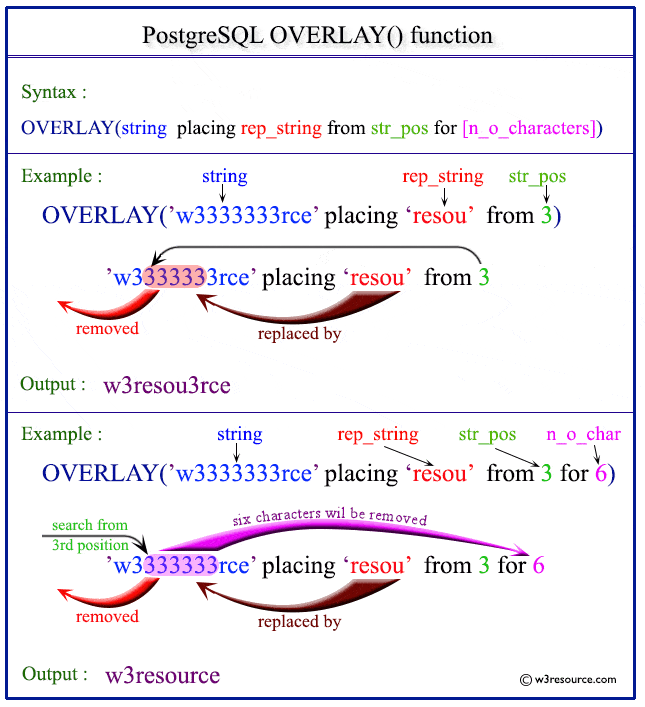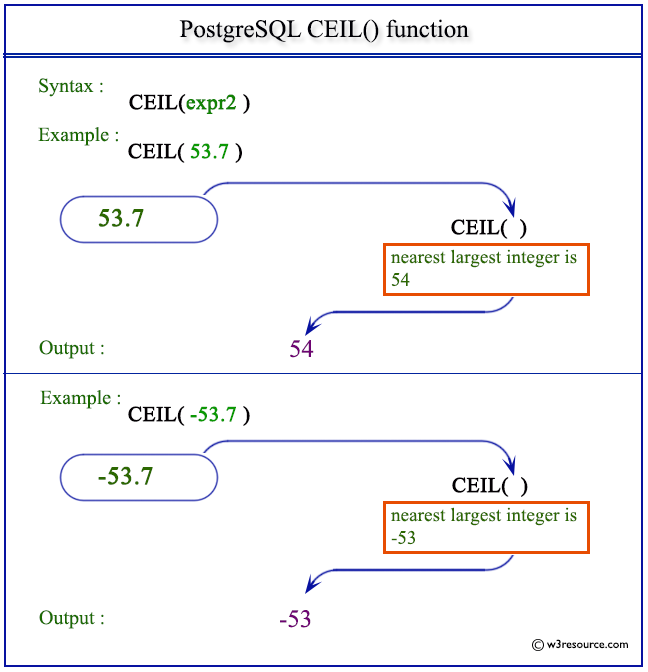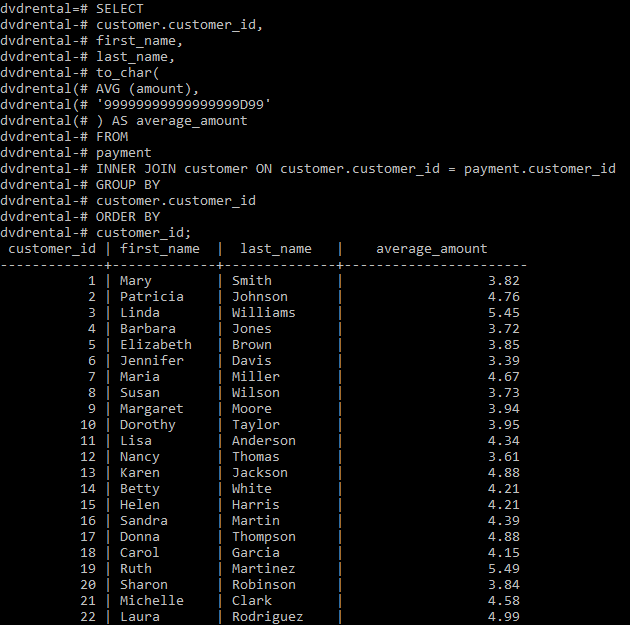

SELECT AVG (price)Ĭode language: SQL (Structured Query Language) ( sql ) The following example uses the AVG() aggregate function to calculate the average price of all products in the products table. An aggregate function aggregates data from a set of rows into a single row. The easiest way to understand the window functions is to start by reviewing the aggregate functions.
#Rank function in postgresql code#
( 'Samsung Galaxy Tab', 3, 200) Code language: SQL (Structured Query Language) ( sql ) Introduction to PostgreSQL window functions INSERT INTO products (product_name, group_id,price) Second, insert some rows into these tables: INSERT INTO product_groups (group_name)

) Code language: SQL (Structured Query Language) ( sql ) Setting up sample tablesįirst, create two tables named products and product_groups for the demonstration: CREATE TABLE product_groups (įOREIGN KEY ( group_id) REFERENCES product_groups ( group_id)
#Rank function in postgresql how to#
This ensures that Jane and Bob are excluded from the percentile ranking of 0% to 100%.Summary: in this tutorial, you will learn how to use the PostgreSQL window functions to perform the calculation across a set of rows related to the current row. It works by separating all null values from non-null values for purposes of the ranking. This same pattern applies to the ntile() aggregate function, as well. However, the results for percent_rank() do differ: without_partition is wrong, ranging from 0% to 71.4%, whereas with_partition correctly gives pctrank() ranging from 0% to 100%. This query gives the same results for arrival_rank_with/without_partition. ,case when arrival_time is not null then percent_rank() over (partition by arrival_time is not null order by arrival_time) end as arrival_pctrank_with_partition ,case when arrival_time is not null then percent_rank() over ( order by arrival_time) end as arrival_pctrank_without_partition ,case when arrival_time is not null then rank() over (partition by arrival_time is not null order by arrival_time) end as arrival_rank_with_partition ,case when arrival_time is not null then rank() over ( order by arrival_time) end as arrival_rank_without_partition with dinner_show_up("person", "arrival_time", "restaurant") as (values Please forgive the wide rows, but I think they better contrast the differing techniques. That will cause all null arrival_time rows to be placed into the same group and given the same rank, leaving the non-null rows to be ranked relative only to each other.įor the sake of a meaningful example, I mocked up a CTE having more rows than the intial problem set. What I want to happen instead is this: | Person | arrival_rank |Ī more general solution for all aggregate functions, not only rank(), is to partition by 'arrival_time is not null' in the over() clause. Rank() over (partition by Restaurant order by arrival_time asc)Īnd the result will be | Person | arrival_rank | The query I'm writing would be: select Person, Suppose I have a table dinner_show_up that looks like this: | Person | arrival_time | Restaurant |īob never shows up. What I want to happen is that these no-shows get a rank of NULL instead of this imputed rank.

I am using a rank() window function to generate arrival ranks, but in the places where the arrival time is null, rather than returning a null rank, the rank() aggregate function just treats them as if they arrived after everyone else. I am writing a SQL query using PostgreSQL that needs to rank people that "arrive" at some location.


 0 kommentar(er)
0 kommentar(er)
